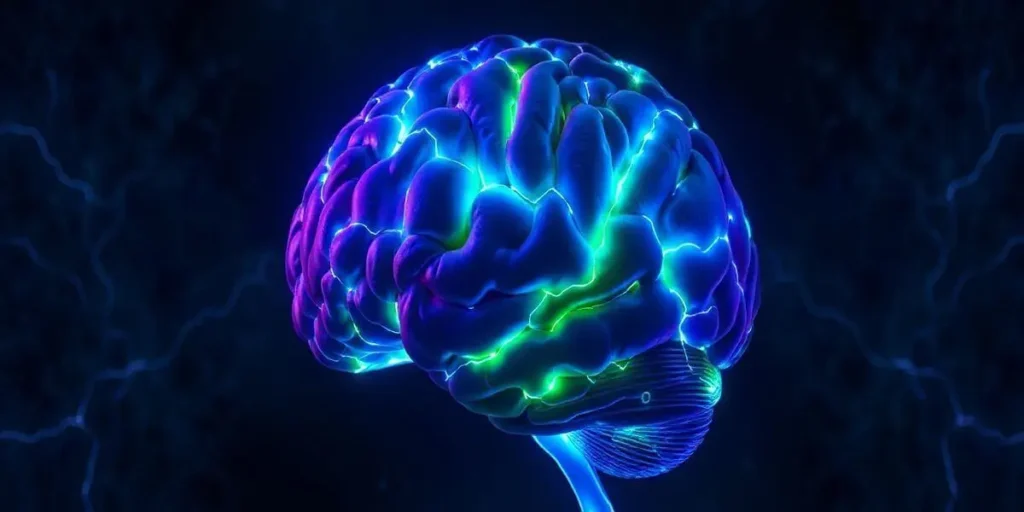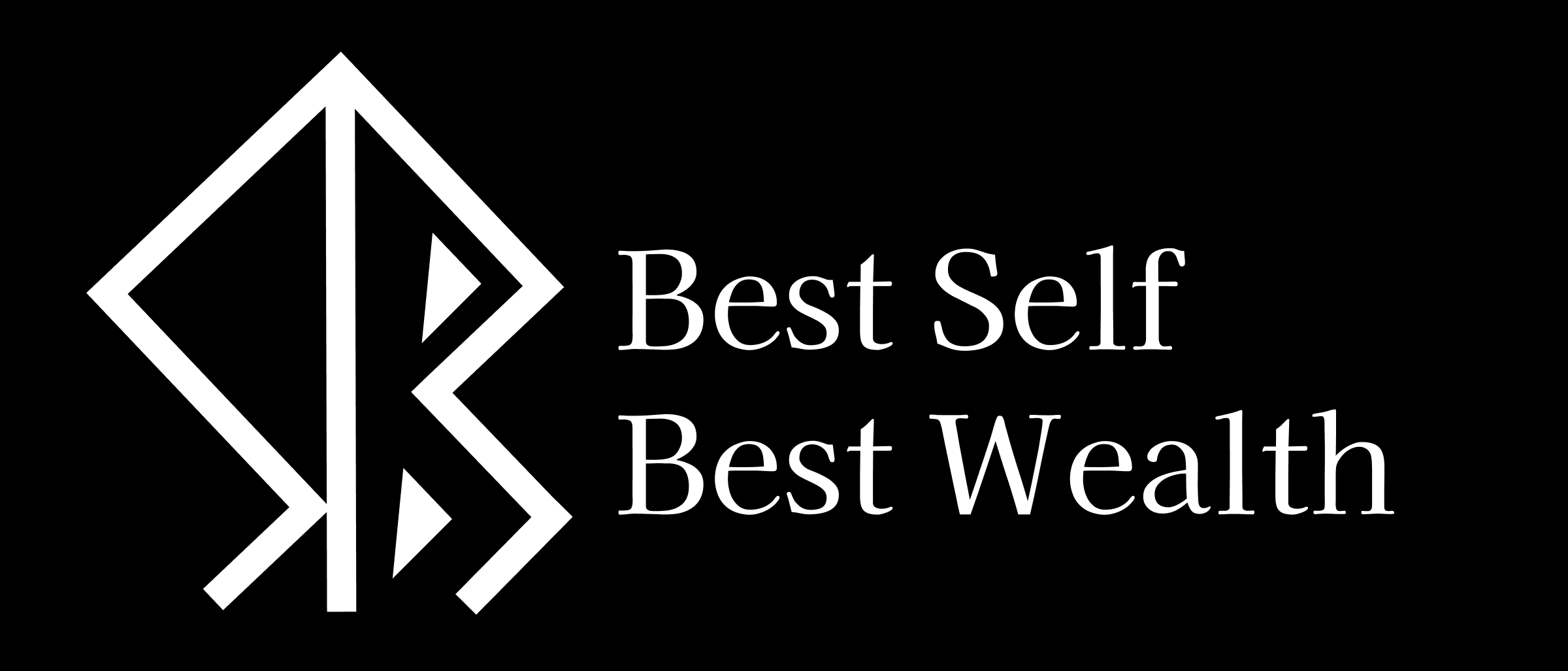Introduction
Self-awareness is the foundation of personal growth and the key to understanding your true potential. It’s the ability to reflect on your thoughts, emotions, and actions with clarity, allowing you to make mindful decisions that align with your true self. For beginners, the journey to self-awareness can feel overwhelming, but it’s one of the most empowering steps you can take to transform your life.

By developing self-awareness, you can unlock inner strength, boost your confidence, and discover a sense of purpose that guides you through every aspect of life. Whether you’re looking to build better relationships, face challenges with resilience, or simply understand your desires and motivations, self-awareness is the key that opens the door to a more fulfilling and meaningful existence.
In this guide, we’ll explore how to begin your journey toward self-awareness and uncover your inner strength and purpose-one mindful step at a time. Let’s dive in!
What Is Self-Awareness and Why Does It Matter ?
Definition of Self-Awareness
Self-awareness is the ability to introspect and recognize one’s own emotions, thoughts, and behaviors and how they influence our actions and interactions with others. It’s essentially the act of being aware of your own inner world, understanding what drives your decisions and how you respond to different situations. This deep understanding of yourself can help you navigate life more intentionally, as you begin to see yourself more clearly, without the distortion of biases or unconscious patterns.
At its core, self-awareness involves two key components: internal self-awareness and external self-awareness.
- Internal self-awareness
This aspect refers to the ability to recognize your emotions, thoughts, and values in any given moment. It’s the process of noticing your internal states-whether you’re feeling frustrated, excited, or calm-and understanding why you feel the way you do. Internal self-awareness also includes understanding your values, strengths, weaknesses, and triggers. When you develop internal self-awareness, you become more in tune with your motivations, desires, and fears, which gives you more control over your reactions and choices. For example: You might recognize that you’re feeling stressed because you’re afraid of failure. By recognizing this, you can make conscious choices to manage your anxiety, such as practicing deep breathing or reframing your thoughts.
- External self-awareness
External self-awareness refers to the ability to recognize how you are viewed by others. It’s about being aware of your actions and their impact on those around you. This type of self-awareness allows you to develop empathy, manage relationships more effectively, and adjust your behavior in social settings to match how you want to be seen. For example: If you notice that your friend seems withdrawn after a conversation, you might reflect on your words or tone to determine if something you said had a negative impact on her.
Together, these two aspects of self-awareness create a more balanced, authentic version of yourself, allowing you to align your actions with your values and make more thoughtful, compassionate decisions in your daily life.
Self-awareness doesn’t happen overnight-it’s an ongoing process of reflection, growth, and adjustment. But with practice, it becomes an incredibly powerful tool to help you realize your full potential and move toward a more purposeful, fulfilling life.
The Link Between Self-Awareness and Personal Growth
Self-knowledge is often considered the cornerstone of personal growth. It provides the clarity and insight necessary to understand not only who we are, but also who we want to become. The relationship between self-awareness and personal growth is deeply intertwined – by developing a deeper understanding of ourselves, we can identify areas for improvement, make better decisions, and unlock our potential to grow in every aspect of life.
- Self-awareness fosters self-improvement
One of the most important ways that self-awareness promotes personal growth is by allowing us to identify our strengths and weaknesses. When you are aware of your skills, passions, and talents, you can lean into them and develop them. Similarly, by identifying areas where you may be lacking or struggling, you can take targeted steps to improve.- Example: A person who is self-aware might realize that he or she struggles with time management. Recognizing this limitation allows them to take proactive steps – such as using scheduling tools or prioritizing tasks – to improve their efficiency, which ultimately drives their personal and professional growth.
- Helps you make more informed decisions
Self-awareness gives you the clarity to make decisions that align with your core values and long-term goals. By understanding your own motivations, desires, and fears, you’re more likely to make decisions that are in harmony with your authentic self, rather than being influenced by external pressures or societal expectations.- Example: If you’re self-aware about your values and know that family time is important to you, you may choose a career path that allows you to maintain a healthy work-life balance rather than a job that requires excessive overtime.
- Self-awareness fosters emotional intelligence
Another critical element of personal growth is emotional intelligence (EQ)-the ability to understand and manage your emotions while empathizing with others. Self-awareness is a fundamental component of EQ. By becoming more aware of your emotions, you can regulate them more effectively, improving your emotional responses to situations and your ability to connect with others.- For example: If you’re aware of your tendency to react with frustration in stressful situations, you can work on strategies (such as deep breathing or pausing before responding) to prevent emotional outbursts and communicate more calmly. This ability to manage emotions is essential for healthy relationships and leadership.
- Supports accountability and responsibility
Self-awareness promotes personal accountability. When you are aware of your thoughts and behaviors, you can take responsibility for your actions rather than blaming others or external circumstances. This accountability is a critical element of personal growth because it allows you to learn from your mistakes and take steps to do better next time.- Example: After a disagreement with a colleague, a self-aware individual might reflect on his or her own contribution to the conflict and acknowledge where he or she could have communicated more effectively, allowing him or her to grow and improve in future interactions.
- Helps you overcome limiting beliefs
Self-awareness can also reveal the limiting beliefs that may be holding you back from reaching your full potential. Often these beliefs are unconscious, but by becoming more aware of them, you can challenge them and replace them with more empowering thoughts.- For example: If you’ve always believed that you’re not good enough to pursue a new career, self-awareness helps you confront that belief. By identifying it as a limiting thought and replacing it with positive affirmations, you can take the necessary steps to change careers and grow both personally and professionally.
- It leads to greater self-compassion.
As you become more self-aware, you also develop greater self-compassion. You begin to understand that growth is a journey and that setbacks or mistakes are a natural part of the process. This understanding fosters a sense of kindness toward yourself, allowing you to face challenges with resilience and optimism rather than criticism and self-doubt.- Example: When faced with a failure, a self-aware person might say, “This didn’t go as planned, but it’s a learning opportunity,” rather than beating themselves up. This compassionate attitude encourages continued personal growth and resilience.
Benefits of Self-Awareness
Self-awareness is a transformative skill that brings profound benefits to nearly every aspect of our lives. By becoming more in tune with our thoughts, emotions, behaviors, and motivations, we open the door to greater personal development and fulfillment. Here are some of the key benefits that self-awareness offers:

- Enhanced Emotional Intelligence (EQ)
Emotional intelligence (EQ) is the ability to recognize, understand, and manage your own emotions and the emotions of others. Self-awareness is a fundamental component of EQ because it allows you to identify and label your emotions in real time. Once you understand your emotional triggers and patterns, you gain the power to regulate them effectively, leading to healthier emotional responses and more stable relationships.- Benefit: With improved EQ, you can handle stressful situations with calmness, resolve conflicts more effectively, and build deeper connections with those around you.
- Example: If you’re aware that you tend to feel overwhelmed when faced with tight deadlines, you can take proactive steps-such as breaking tasks into manageable chunks or asking for help-to prevent anxiety from escalating.
- Better decision-making and problem-solving
Self-awareness enables you to make more informed decisions by giving you a clearer understanding of your values, priorities, and long-term goals. When you know what is truly important to you, you can evaluate options and outcomes more effectively, aligning your decisions with your authentic self rather than being swayed by external pressures or fleeting desires.- Benefit: By making decisions that reflect your core values, you are more likely to feel fulfilled and confident in your choices.
- Example: If you’re self-aware about your desire for work-life balance, you may choose a job that offers flexible hours over one that requires long, rigid hours, leading to greater life satisfaction.
- Increased self-confidence
Self-awareness helps build confidence by enabling you to recognize your strengths, talents, and accomplishments. When you have a clear sense of who you are and what you bring to the table, you feel more capable and secure in your abilities. This confidence extends to many areas of your life, whether it’s your personal relationships, your career, or your ability to take on new challenges.- Benefit: With greater confidence, you’re more likely to take on new challenges, pursue your goals with enthusiasm, and bounce back from setbacks.
- Example: A confident person who understands their unique skills may be more likely to speak up in a meeting or apply for a promotion because they recognize their value and potential.
- Stronger relationships
Self-awareness improves relationships by allowing you to understand both your own emotional needs and those of others. When you are aware of your feelings and how they affect your interactions, you can communicate more effectively and avoid misunderstandings. In addition, understanding how others perceive you helps foster empathy, which is key to building trust and connection.- Benefit: Increased self-awareness allows for open, honest communication and deeper emotional connections with friends, family, colleagues, and romantic partners.
- Example: With self-awareness, you can recognize when you’re getting defensive during a conversation and choose to pause and listen more actively, improving communication and resolving conflict more effectively.
- Increased resilience and adaptability
Self-awareness helps you develop greater resilience when facing challenges. When you’re aware of your emotional reactions to adversity, you can better process and manage them, which helps you bounce back more quickly. In addition, knowing your strengths and coping mechanisms gives you the tools to adapt to changing situations, whether in your personal or professional life.- Benefit: Greater resilience and adaptability means you’re better equipped to deal with stress, setbacks, and changing circumstances, which ultimately leads to personal growth.
- Example: After experiencing a setback in a personal project, a self-aware person can recognize their feelings of disappointment, reframe the situation as a learning opportunity, and take actionable steps to improve without becoming discouraged.
- Deeper Sense of Purpose and Fulfillment
One of the most profound benefits of self-awareness is its ability to help you connect with your deeper sense of purpose. By understanding your values, passions, and motivations, you can align your daily actions with your larger goals, resulting in a more meaningful and fulfilling life. Self-awareness brings clarity to what really matters, guiding you to make choices that resonate with your true self.- Benefit: When you live in alignment with your values and purpose, you experience a greater sense of satisfaction and fulfillment in both your personal and professional life.
- Example: If you’re aware that helping others is a core value, you may feel more fulfilled in a career that allows you to work in a service-oriented role, such as health care or teaching.
- Better stress management
Self-awareness helps you recognize the early signs of stress so you can intervene before it becomes overwhelming. When you’re aware of your stress triggers – whether they’re related to work, relationships, or internal expectations – you can take proactive steps to manage them. This might include practicing relaxation techniques, setting boundaries, or seeking support from others.- Benefit: Better stress management leads to improved mental and physical well-being, as well as a greater ability to stay calm and focused in high-pressure situations.
- Example: A self-aware person may notice his or her body tense up when under pressure and recognize it as a signal to take a break or practice deep breathing to reduce stress levels.
- Empowerment and Self-Responsibility
Self-awareness leads to greater empowerment because it allows you to take responsibility for your own thoughts, feelings, and actions. Instead of blaming external circumstances for your challenges, you develop the ability to take ownership of your experiences and make conscious changes. This sense of personal responsibility empowers you to shape your life according to your own desires and aspirations.- Benefit: By taking full responsibility for your life, you unlock the power to change your circumstances, leading to greater empowerment and self-efficacy.
- Example: If you recognize that procrastination is holding you back, you can take ownership of this habit and implement strategies to overcome it, such as setting small goals and breaking tasks into manageable steps.
Steps to Begin Your Journey to Self-Awareness

Practice Mindfulness Daily
Mindfulness is the act of focusing your attention on the present moment without passing judgment. It involves being fully aware of your thoughts, feelings, sensations, and the environment around you as they occur, without trying to change them or becoming overwhelmed by them. By practicing mindfulness daily, you can cultivate a heightened sense of self-awareness that helps you better understand your emotional state, recognize unhelpful thought patterns, and respond to situations with greater clarity and intention.
Mindfulness can be integrated into your daily life through a variety of simple yet powerful practices. Here’s how:
- Mindful Breathing
Mindful breathing is one of the easiest and most powerful techniques to center yourself in the present moment. It involves focusing on your breath-its rhythm, depth, and the sensations it creates as you inhale and exhale. This practice not only brings awareness to the present moment, but also helps calm your mind and reduce stress. By taking a few minutes each day to breathe mindfully, you can center yourself and gain a greater sense of control over your emotional responses.- Benefits: Mindful breathing helps regulate the nervous system, reduce anxiety, and improve mental clarity.
- Example: Begin by sitting in a quiet space, closing your eyes, and focusing only on your breath. Inhale deeply to the count of four, hold for four, and exhale to the count of four. Repeat this for 3-5 minutes, noticing how your body feels with each breath.
- Mindful Eating
Mindful eating involves paying close attention to the eating experience without distractions. This means engaging all of your senses as you eat – paying attention to the texture, taste, and smell of your food. It also means noticing how you feel before, during, and after eating, paying attention to hunger cues, and eating until you’re satisfied rather than full.- Benefit: Mindful eating helps you develop a healthier relationship with food by making you more aware of your eating habits and emotional triggers that lead to overeating or unhealthy choices.
- For example: Try eating a meal without distractions (e.g., no TV, no phone). Concentrate on each bite, chewing slowly and appreciating the flavors. Pay attention to how your body feels before and after eating, and notice when you’re truly satisfied.
- Mindful walking
Mindful walking is another excellent mindfulness practice to incorporate into your daily routine. It involves walking slowly and deliberately, paying close attention to each step. As you walk, focus on the sensations in your body, the movement of your legs, the pressure in your feet, and the rhythm of your stride. You can also observe your surroundings, the sounds, and the air on your skin, staying present in each moment.- Benefits: Mindful walking promotes physical relaxation and helps you clear your mind, providing a quick mental reset during the day.
- Example: Take a walk in a quiet place-perhaps a park or your neighborhood. As you walk, notice the feel of your feet on the ground, the movement of your body, and the sights and sounds around you. If your mind begins to wander, gently bring your attention back to your walk.
- Mindful Journaling
Mindful journaling involves writing down your thoughts and feelings in a reflective and non-judgmental way. This practice allows you to connect more deeply with your inner world and to observe your thoughts without getting caught up in them. Journaling can help you process difficult emotions, gain insight into recurring patterns, and track your personal growth.- Benefits: Mindful journaling supports emotional processing and increases self-awareness by providing a safe space to explore your feelings.
- Example: At the beginning or end of your day, write down any thoughts or feelings that come to mind. Don’t worry about grammar or structure-just let the words flow. Try to be an observer of your feelings without labeling them as good or bad.
- Body Scan Meditation
A body scan is a mindfulness meditation in which you mentally scan each part of your body from head to toe, paying attention to any sensations, tensions, or discomfort. This practice helps you become more attuned to your body’s signals and can also help you release physical tension, which is often associated with emotional stress.- Benefits: The body scan promotes relaxation, reduces physical tension, and increases body awareness.
- Example: Begin by lying down in a comfortable position. Close your eyes and take several deep breaths. Gently focus your attention on your toes, becoming aware of any sensations or feelings. Gradually work your way up through your body, starting with your feet and moving through your legs, hips, stomach, chest, arms, neck, and face, paying attention to sensations in each area. If you notice any tension, breathe into that area and try to release it.
- Mindful Listening
Mindful listening is the practice of focusing fully on the sounds around you and truly listening without the intention of responding or judging. This can be especially powerful in conversations, where many of us tend to focus on what we’re going to say next rather than truly listening to the other person. By practicing mindful listening, you can improve your relationships and develop empathy.- Benefit: Mindful listening helps you build stronger connections with others and fosters a deeper sense of empathy and understanding.
- Example: During a conversation, make an effort to fully listen to the other person without interrupting. Pay attention to their words, tone of voice, and body language. Focus on their message and resist the urge to respond while they’re speaking.
- Mindful Reflection
Mindful reflection involves taking time to stop and think about your day, your feelings, and your experiences. This practice can be done at the end of the day or after any significant event or interaction. The goal is to reflect on your thoughts and feelings in a non-judgmental way, simply observing and acknowledging what comes up.- Benefits: Mindful reflection fosters deeper insight into your emotional and mental states, helping you to learn from your experiences.
- Example: Before bed, take five to ten minutes to reflect on the events of the day. What feelings did you experience? What thoughts did you have? How did you react? Avoid criticizing yourself – just notice and observe.
Observe your emotions without judgment.
Emotions are natural signals that guide our thoughts and actions. Instead of labeling them as good or bad, practice observing them objectively. This will help you build emotional intelligence and avoid impulsive reactions.
- Acknowledge your feelings
Acknowledge emotions as they arise without trying to suppress or exaggerate them. Simply saying, “I feel frustrated” allows you to process them in a healthy way.
- Notice physical sensations
Emotions often manifest in the body (e.g., chest tightness with anxiety). Noticing these sensations can help you manage emotions before they escalate.
- Create a Mental Gap Before Reacting
Pause and reflect before acting on emotions. This space allows for a thoughtful response rather than an automatic reaction.
- Identify emotional triggers
Understanding what triggers your emotions can help you break negative cycles and respond more effectively in similar situations.
- Let emotions pass naturally
Emotions are temporary – allow them to come and go like waves rather than clinging to them or pushing them away.
- Practice self-compassion
Instead of being self-critical, treat yourself with kindness. Remember that all emotions are part of the human experience.
- Use mindfulness or journaling
Mindfulness helps you stay present with your emotions, while journaling provides clarity by putting feelings into words.
Start with Self-Reflection
The base of self-knowledge is self-reflection. It helps you to understand your thoughts, emotions, and behaviors better and promotes personal growth with better decision-making.
- Spend quiet time
Find a quiet, comfortable place where you can reflect on your thoughts and experiences. Even 5-10 minutes daily will do wonders.
- Use meaningful questions like, ‘What feelings have I had today?’ or ‘How did I meet challenges?’ to practice deeply understanding your behavior.
- Keep a reflection journal
Over time, writing down how you think and feel helps you to recognize what patterns are not serving you well and where in your life you need to make changes.
- Ask for feedback
Sometimes others see things we don’t. Ask trusted friends or mentors about strengths and blind spots.
- Exercise self-compassion
Reflection is not about beating yourself up; it’s about learning. Be kind to yourself while you discover things you could work on.
Unlocking Your Inner Strength Through Self-Awareness
Building resilience and confidence.
Self-awareness is an important ingredient that creates resilience and confidence. If you know yourself better, then you are more capable of facing challenges with much inner strength.
- Identify your strengths and weaknesses
Knowing where you excel and where you struggle helps you approach life with confidence and a growth mindset.
- Reframe negative thoughts
Challenge self-doubt by changing your perspective. Instead of “I can’t do this,” try “I’m learning and improving.
- View failure as a chance to learn
Growth entails making mistakes. It is when one looks at setbacks as lessons instead of defeats that helps to build resilience.
- Setting of realistic goals, celebrating progress
Small successes build confidence over time. Recognize your progress, no matter how small.
- Positive inner dialogue
Speak softly with yourself, treating yourself with self-compassion; a great booster for both confidence and resilience.
Recognizing and overcoming self-doubt.
The self-doubts arise from very deep-seated beliefs that hold them back. Self-awareness will make you realize and question these doubts to help you gain confidence.
- Identify Your Limiting Beliefs
Pay attention to negative thoughts like “I’m not good enough” or “I always fail.” Identifying them is the first step to overcoming them.
- Question the Validity of Your Beliefs
Challenge your thoughts by asking, “Is this really true?” or “What evidence supports this belief?” Often, self-doubt is rooted in fear rather than fact.
- Reframe Negative Self-Talk
Change limiting beliefs with empowering ones: instead of telling yourself, “I will never succeed,” remind yourself, “I am capable and growing every day.”
- Take Small, Courageous Steps
Confidence grows through action. Start with small challenges to prove to yourself that you are capable.
- Practice Self-Compassion
Be soft to yourself; everybody is faced with a self-doubting feeling sometimes, but awareness helps you through with resilience.
Developing mental clarity.
Mental clarity enables you to make more informed decisions by eliminating confusion and emotional turmoil. Understanding how your mind processes information helps in thinking clearly.
- Understand Your Thinking Patterns
Your brain analyzes information through logic, emotions, and biases. Understanding how you think will help you make more rational decisions.
- Clear the Mental Clutter
Too many distractions or unresolved thoughts cloud judgment. Journaling, meditation, or deep breathing can help clear the mind.
- Separate Emotion from Logic
Emotions play a huge role in decision-making, but weighing them against logical reasoning often yields better results. Stop and ask yourself, “Am I thinking emotionally or logically?”
- Prioritize Major Decisions
Not all decisions require heavy thought. Save your mental energy for choices that will greatly affect your life.
- Step Back for Perspective
Taking a break from a problem often brings great clarity and insight. Stepping away allows your mind to reset, process information more effectively, and make well-informed decisions with a fresh perspective.
Finding Purpose with Self-Awareness
How self-discovery leads to a sense of purpose.
Self-discovery allows you to learn more about yourself and, therefore, understand your purpose in life. You feel that your life is more meaningful and worth living when your actions are in tandem with your values.
- Know Your Core Values
Think about what is important in your life: honesty, creativity, growth, or helping others. Most often, your purpose is connected with these values.
- Recognize What Energizes You
Pay attention to what you are doing when you feel fulfilled and motivated. These can be your guide towards living a purpose-driven life.
- Align Daily Actions with Your Purpose
Consciously make choices reflecting your values. Even small actions, like helping a friend or pursuing a passion, bring deeper meaning.
- Let Go of External Expectations
True purpose comes from within, not from societal pressures. Focus on what feels right for you, not what others expect.
- Grow and Change
What makes life meaningful for you may well shift with time. Remain open to the experiences and information that enable growth.
Exploring your passions and motivations.
Understand now thy passions and inspirations that fuel your life, and live a more purposeful existence with meaning. Self-awareness is vital in ascertaining what energizes you and inspires you.

- Reflect upon activities that excite you
Think of the moments when you are fully involved in an activity and energized. These experiences will often highlight core passions.
- Ask meaningful questions
Ask yourself, “What is it that I could never be bored doing?” or “What do I wish would happen in the world?”
- Seek out new experiences
Try new hobbies, careers, or activities that just might teach you what it is you really like. Be inquisitive, and keep an open mind.
- Look for patterns in your interests
Common themes in your past interests, childhood dreams, or recurring thoughts often point to deeper passions.
- Listen to your intuition
Sometimes, the gut tells you what really matters. Pay attention to what naturally excites and inspires you.
The connection between purpose and fulfillment.
A well-defined purpose helps you live a more fulfilling life because direction and significance are clear for your actions. Living a life aligned with your core values creates greater fulfillment and joy in your life.
- Better Motivation, Better Focus
Having a clear-cut sense of purpose drives and compels one toward consistent and focused action. It keeps you motivated even amidst challenges.
- Increased Resilience
It can even help you overcome many obstacles when it becomes clearer that the things you’re doing are pointing to something larger in your life.
- Increased well-being
Living a purposeful life adds to emotional and mental well-being because there is meaning behind everything that you are doing.
- Better relationships
Living a values-guided life attracts like-minded people with similar values and passions, thus fostering deeper and more meaningful relationships.
- Long-term satisfaction
Living with a purpose gives lasting fulfillment because it is anchored in inner values, not external validation or fleeting pleasures.
Practical Tools and Exercises for Self-Awareness
Journaling prompts for self-discovery.
Journaling is an effective way to understand and unravel your thoughts, feelings, and desires. These questions will guide you in tuning into your inner self and finding out what is truly important to you.
- What do I feel most alive doing?
- What do I value most in life?
- When am I at peace with myself?
- What would I do if I knew I couldn’t fail?
- What beliefs or habits do I need to let go of in order to grow?
- How do I want to be remembered?
These may lead you toward deeper self-knowledge and help you align your actions with what is truly important for you.
Self-awareness exercises.
Certain exercises will help you develop much-needed self-awareness and give a peek into strengths, weaknesses, and growth areas. Following are some helpful activities:
- SWOT (Strengths, Weaknesses, Opportunities, Threats) Analysis:
The SWOT exercise helps to garner a clear perspective of your personal and professional life by understanding your strengths, weaknesses, opportunities for growth, and possible threats. This helps you continue doing what you do best and work on areas that need attention.
- Mind mapping:
Create a mind map of your life goals, passions, and values. The visual exercise helps you see the connection and prioritize what is most important to you.
- Daily reflection journaling:
Spend 5-10 minutes each day writing about your feelings, choices, and experiences. Reflect on how well your actions line up with your values and goals.
- Personality assessments (e.g., Myers-Briggs, Enneagram):
A personality test might give you insight into your behaviors, preferences, and natural tendencies and how you relate to the world.
- Feedback from others: Constructive feedback from friends, family, and colleagues will also help. How others perceive you will give a new perspective on your strengths and areas for growth.
These exercises will bring you in touch with your inner self, create self-awareness, and make conscious choices for growth.
Mindfulness techniques.
Mindfulness techniques are supposed to keep you in the present, make you more aware of yourself, and cope with stress in a positive manner. The following are two effective practices:
- Body scan meditation:
This is done by paying attention to parts of the body in progression, from head to toe. This technique helps an individual develop awareness of physical sensations, releases tension, and allows the manifestation of emotions to be recognized within the body.
How to practice:
Find a quiet place to sit or lie down comfortably without distraction. Let yourself become relaxed and comfortable, the feeling of your body and mind settling into the present moment. Close your eyes and breathe deeply a couple of times. Bring attention gradually to all parts of your body, starting from your toes, working your way upwards, noting sensation, tension, or discomfort without judgment. Generally observe and breathe. Proceed with a full-body scan for complete release and presence.
- Gratitude practice:
Gratitude turns one’s attention away from what is scarce in life and onto what is abundant. It is a form of mindfulness because it elicits positive emotions, which in turn enhances psychological well-being.
How to practice:
Take a minute each day to reflect on and write down three things you are grateful for. This practice will help you shift your focus to the positive aspects of your life and create a sense of appreciation and mindfulness.
Reflect on why each of those things makes you feel grateful and how it has impacted your life.
Allow yourself to feel the positive emotions associated with the feeling of gratitude.
This will bring an awareness of life’s little treasures and a deeper connection with the present that time itself yields. Both these exercises can increase levels of mental clarity, reduce the level of stress, and deepen general mindfulness overall.
Conclusion
Self-awareness is a form of power that unlocks your inner power in finding your purpose. By being in touch with your feelings, values, and motivation, you make conscious choices congruent with your real self. It is through awareness that growth, resilience, and fulfillment are built.
Begin by making small, active steps every day through journaling, mindfulness practices, or self-reflection. These small things can cause long-term change in your life and build in you clarity and confidence to forge ahead.
Remember, the journey of self-discovery is metamorphic. It is in your power to build a life of purpose and strength with unyielding effort and an open heart. Accept the process, let self-knowledge lead you in, and come into the life that is truly yours.
It all begins with you; now, take a step forward to unlock your potentials!
Created by John – 2025-01-04





